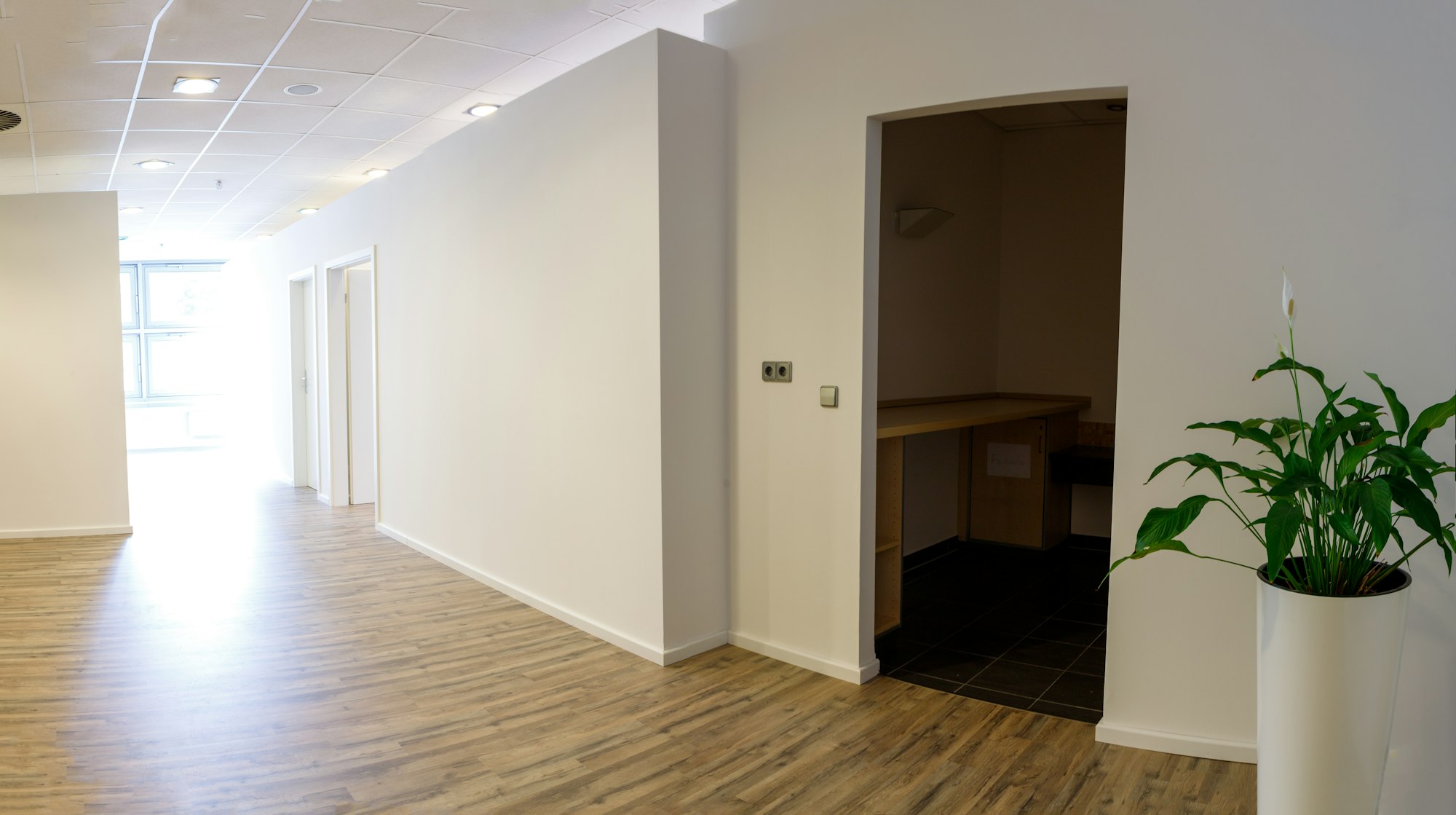Unsafe Discharges from Skilled Care: Can a Nursing Facility Kick You Out?
Cuts to Medicare reimbursement for therapies like speech therapy have led to unsafe discharges from skilled nursing facilities. Inadequate notice, poor discharge planning, and limited Medicare Advantage coverage leave nursing home residents and families struggling to protect their welfare.

Living in a skilled nursing facility (SNF) can be a difficult transition for many people, and understanding the laws which protect residents of SNFs is essential before making any decisions. This guide will focus on one specific question: “Can a skilled nursing facility kick you out?”
We will answer this question by discussing the legal rights and responsibilities of SNF residents, and explain why and when it is legally permissible for an SNF to refuse admission or discharge a resident, including the different types of nursing home discharges. We will also discuss the appeals process and steps that can be taken if a resident feels they have been unjustly discharged from a SNF. It is important to understand these regulations in order to protect yourself and your rights as a SNF resident. Throughout this guide, we hope to empower you with information and resources so that if ever faced with the difficult decision to leave a SNF, you will be confident in your knowledge of your rights.
With the aforementioned in mind, let us begin by discussing the legal rights of SNF residents.
Legal Rights of Skilled Nursing Facility Residents Under Medicare Coverage
Living in a skilled nursing facility is an important decision and residents should understand their legal rights. Everyone who resides in a skilled nursing facility is protected by legal rights that are governed by federal and state laws.
Residents have the right to be treated with respect and dignity, and this includes every nursing home resident. This includes providing them with appropriate care and services, ensuring that their basic needs are met and that their wishes are taken into consideration when it comes to decision making. Residents also have the right to choose their own doctor, or switch doctors at any time.
Nursing facilities must inform potential residents about services they provide and fees they charge before they can move in. They are also required to provide certain disclosures about care in writing and must follow certain standards when it comes to care and safety. Nursing homes are also required to have a resident’s Bill of Rights in place that outlines the rights of each resident and the obligations of the facility.
Residents also have the right to privacy and confidentiality. All personal health information must be kept confidential and not disclosed without consent. In addition, residents have the right to voice complaints and suggestions about care and services without fear of retaliation, and the right to file a grievance if they feel their rights are not being upheld.
It is important for everyone residing in a skilled nursing facility to understand their legal rights and the regulations that protect them. Knowing your rights is key to having a safe and comfortable stay in the facility.

Understanding Nursing Home Discharge Regulations
Nursing home discharge regulations are designed to safeguard the rights and well-being of nursing home residents. These regulations ensure that any discharge process is conducted fairly and transparently, providing residents with reasonable and appropriate notice and thorough discharge planning. Nursing homes must adhere to these regulations, which specify the conditions under which a resident can be discharged. For instance, a resident may be discharged if they require a higher level of care than the facility can provide, if their health has improved to the point where they no longer need the facility’s services, or if their presence poses a safety risk to other residents or staff. Understanding these regulations helps residents and their families navigate the discharge process with confidence and clarity.
Can a Skilled Nursing Facility Kick You Out Without Written Notice?
It’s important to understand the legal rights and regulations regarding skilled nursing facility residents. Skilled nursing facilities follow certain protocols that allow them to discharge or refuse admission to a resident if they deem it necessary, though this action can be challenged if necessary.
When living in a skilled nursing facility, it’s critical to know that you have certain rights, and that the facility is subject to certain laws and regulations that protect you. A comprehensive discharge plan must be in place to ensure the resident's needs are met after leaving the facility. In certain cases, it’s possible for a skilled nursing facility to legally remove you from their premises. The circumstances surrounding such an action will determine the legality of the decision.
A skilled nursing facility must consider certain factors when making their decision to remove a resident. These include:
The person’s physical or mental health, including medications prescribed
The resident’s decisions affecting their health or safety
The welfare of others living in the facility
Whether the resident poses an imminent threat to themselves or other residents
The availability of beds in the facility
The reason for the resident’s admission into the facility
If the facility has received an order to discharge the resident from a doctor or court
While a skilled nursing facility may be allowed to remove you from their premises, this should only be done after proper notice is given. Before taking such action, the facility must inform the resident of their right to appeal the decision and provide instructions on how to appeal. Residents are also entitled to written notice of the reasons for the discharge.
With this guide, we hope to provide an understanding of the legal rights and regulations regarding skilled nursing facilities. It’s important to be aware of these regulations in order to protect yourself and ensure that you are treated fairly.
When Can a Skilled Nursing Facility Kick You Out?
If you or someone you love is living in a skilled nursing facility, it’s important to understand what the legal rights of the residents are and when a skilled nursing facility can legally ask someone to leave.
The decision by a skilled nursing facility to refuse admission of a resident or to discharge them must prioritize the resident's welfare and be evidence-based. The decision must not be influenced by any outside factors. Any dispute resolution must involve both the facility and the resident or their representative.
When making the decision to remove someone from their facility, skilled nursing facilities must consider a variety of factors. These include:
The health and safety of other residents;
Whether the resident can benefit from the care provided;
Whether the facility can provide the necessary care;
If the resident does not need the services that a skilled nursing facility provides;
If continuing the stay of the resident in the facility jeopardizes the health of others; and
If there has been a breach of agreements between the facility and the resident.
Before a resident can be discharged, the facility must provide a notice of the proposed discharge at least 30 days in advance of the potential departure date. If a resident is discharged without the written notice they have the right to appeal the decision within 90 days.
Notice and Discharge Planning
Notice and discharge planning are crucial elements of the nursing home discharge process, ensuring that residents are treated with respect and their transitions are managed smoothly. Nursing homes are required to provide a written notice to the resident and their family at least 30 days before the discharge date. This notice must clearly state the reason for the discharge, the exact discharge date, and the resident’s rights to appeal the decision. Additionally, the notice should inform the resident of their right to remain in the facility until a final decision is made on their appeal.
Discharge planning goes beyond just providing notice; it involves making comprehensive arrangements to ensure the resident’s needs are met after they leave the facility. This includes securing a safe and appropriate place for the resident to go, arranging for necessary durable medical equipment, organizing transportation, and setting up follow-up care. Effective discharge planning is essential to ensure that the resident continues to receive the care and support they need, even after leaving the nursing home.
Medicare Coverage and Discharge
Medicare coverage is a significant factor in the discharge process from a skilled nursing facility. Medicare typically covers up to 100 days of skilled nursing care, after which the coverage may end. When this happens, the nursing home may decide to discharge the resident. However, residents have the right to appeal this decision and request an extension of their Medicare coverage if they believe it is necessary for their health and well-being.
Medicare Advantage plans, which are an alternative to traditional Medicare, may have different rules and coverage limits. Nursing home staff must work closely with these plans to determine the extent of coverage and ensure that residents receive the care they need. In some cases, if Medicare coverage ends, Medicaid may be available to cover the cost of continued care. It is crucial for nursing home residents and their families to understand their Medicare and Medicaid coverage options and their rights regarding discharge. This knowledge can help ensure a smooth transition and continued access to necessary care and services.
The Appeals Process After Being Kicked Out of a Skilled Nursing Facility
If you have been removed from your skilled nursing facility, there are steps that you can take in order to try and get back in. Consulting an elder law attorney can provide essential assistance in navigating the appeals process and protecting your rights. The appeals process allows for those who feel they were unfairly discharged or refused admission to fight their case and hopefully gain admittance back into the facility. It is important to understand the legal rights and obligations associated with living in a skilled nursing facility.
The first step in the appeals process is to submit a written appeal to the administrator of the skilled nursing facility. The appeal should include the reason for the removal or refusal of admission, as well as a request for a review of the decision by the facility. The appeal should be as detailed and thorough as possible, and should include copies of any relevant documentation.
Once the appeal has been submitted, the administrator will review the case and make a determination based on the evidence provided. If the administrator upholds the decision to refuse admission or discharge a resident, the next step is to contact the state at which the facility is located. Each state has an ombudsman that works to ensure skilled nursing facilities are treating their residents fairly and with respect.
The ombudsman will review the case and determine if the facility is operating within the legal regulations of the state. They may investigate further and pick up on details the administrator may have missed when making their original decision. They will then provide a recommendation to the facility regarding whether or not they should allow the resident to remain. This recommendation is not legally binding, however facilities usually take it into consideration and make their decision accordingly.
In the event that the ombudsman does not recommend overturning the decision, the last resort for the resident is to file a lawsuit against the facility for wrongful discharge or refusal of admission. This should be a last resort, as it can be both costly and time consuming.
Understanding the legal rights and obligations of skilled nursing facility residents is very important. Knowing the proper steps to take in the event of a wrongful discharge or refusal of admission can be the difference between staying in a facility and being forced out. With the right information and guidance, those affected can navigate the appeals process and get back to living their life with dignity and respect.
It is important for those living in a skilled nursing facility to understand their legal rights and responsibilities. This blog post was created to inform readers of the laws that protect them, the factors that a facility considers when deciding to discharge or refuse admission to an individual, and the appeals process should someone be removed unjustly.
The legal rights of skilled nursing facility residents are significant. There are certain laws in place that protect these individuals from being removed or refused admission without just cause. Facilities must follow protocols and can only remove people for valid reasons, such as in cases of unruly behavior, endangering other residents, or not following facility guidelines.
Residents may also be refused admission if they pose a direct risk to the safety and health of other residents, if they do not meet care criteria, or if they are unable to cover the cost of care. It is important for those considering a skilled nursing facility to be informed of the facility’s policies, and ensure that they meet the necessary criteria for admission.
When a skilled nursing facility does have to make the difficult decision to discharge a resident, they consider various factors, including their medical condition, their ability to afford the cost of care, and if they pose a threat to the safety and health of other residents.
Finally, for those who have been removed from their skilled nursing facility, there is an appeals process available. A formal letter stating the reason for the appeal should be sent to the facility administrator. The resident should also contact their local ombudsman. They will investigate the claim and, if found to be justified, will work to resolve the issue.
It is essential for individuals living or considering living in a skilled nursing facility to be aware of their legal rights and responsibilities. Understanding the laws and regulations regarding discharge or refusal of admission can equip individuals with the knowledge needed to protect their rights, as well as those of others in the facility.
How Medicare Reimbursement for Therapies has Been Cut, Negatively Impacting Medicare Coverage
Recent changes to Medicare reimbursement for therapies have had profound implications for older adults in nursing homes, skilled nursing facilities, and home health care settings. These cuts have led to a reduction in Medicare coverage for essential therapies like speech therapy, directly impacting the health and well-being of residents. As a result, nursing home residents are increasingly facing unsafe discharges due to insufficient preparation or lack of appropriate follow-up care.
When Medicare coverage for skilled nursing services ends, many facilities issue discharge notices, citing reasons such as non-payment or a determination that the resident has "improved sufficiently." However, federal regulations require facilities to provide reasonable and appropriate notice, including a written discharge notice that outlines the discharge date, a detailed explanation of the reason for discharge, and information on how to file an appeal. Unfortunately, this process often lacks sufficient communication, leaving residents and family members unprepared for a safe and orderly transfer.
The situation is further exacerbated for those enrolled in Medicare Advantage plans, which often impose stricter limits on coverage compared to traditional Medicare. Facilities may prematurely discharge residents, claiming they no longer meet the criteria for Medicare coverage. These involuntary discharges can disrupt residents' health and welfare, particularly when adequate discharge planning or durable medical equipment for follow-up care is not provided.
For nursing facilities that also accept Medicaid, the financial strain from reduced Medicare reimbursements can lead to an increase in private pay requirements or involuntary transfers to less equipped facilities. Advocacy agencies, elder law attorneys, and long-term care ombudsmen play a critical role in safeguarding the rights of residents during these transitions. Residents and family members must be informed of their appeal rights, the standard appeal process, and the telephone numbers of qualified independent contractors who can provide assistance.
The only exception to these discharge challenges is when facilities ensure a receiving facility is ready and able to provide services. However, without sufficient preparation and a focus on the resident's welfare, such transitions can have dire consequences. It's imperative that policymakers, advocacy groups, and health care providers work together to address these challenges and uphold the federal regulations designed to protect older adults in skilled nursing and nursing home facilities.
More articles for you...











